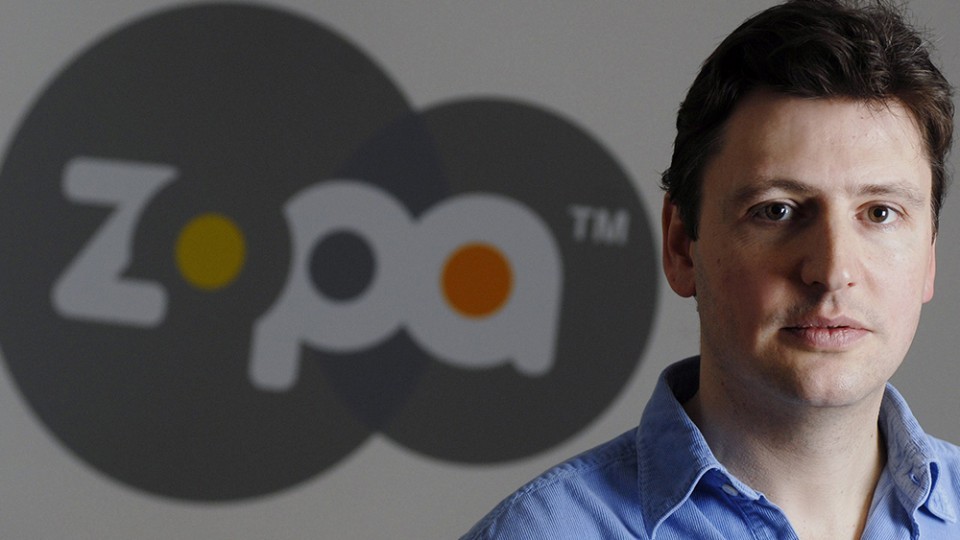
Mon, May 21, 2018 1:08 AM
Property Magnates: Entrepreneurs’ Stories, Opinions & Secrets of Success
After living a year in London, Australian backpacker James Finlayson was tired of living on £100 a week. “When I first arrived it was OK, but I soon realised I needed more money.” Employed as a gardener, he spotted a niche. “My boss had a sideline fitting hanging baskets in pubs, but he wasn’t really taking advantage of it.” Finlayson decided to make a move.
He borrowed some money from his future father-in-law for a van and started approaching pubs. Early on, business was slow, so Finlayson had to go back to his old job and “work part time to make ends meet ”. His boss “never thought my business would take off - to him I was an Aussie passing through”. But his firm, Greenscene, had “a good business model because pubs would pay a one- off charge for a fitting and then a quarterly maintenance fee”. Better still, “a success in one venue meant we were quickly recommended to others”. Unlike other firms in the business, Greenscene’s quarterly fee structure meant it earned cash during the slow winter months. Pretty soon Finlayson had left his former boss and taken on his first employee.
By 1991, the firm had spread across London, with annual sales of £1m. Profits were reinvested in nurseries, allowing him to grow his own plants and push up profit margins. Even the recession of the early 1990s didn’t harm the business. “Landlords preferred to save behind the scenes rather than on the appearance of the pub.”
But a few years later Greenscene found itself out of fashion. The popularity of modern wine bars and chain pubs meant “chrome and wood were ‘in’ while traditional flowers were out ”. Faced with a shrinking market, Finlayson began importing more exotic products, such as olive trees. That maintained sales, but the import costs cut into margins. Profits were also being squeezed by his clients. By 2000, national deals with breweries had helped Finlayson open up England, Scotland and Wales. But one brewery, which represented 25% of sales, began to negotiate tougher terms.
By 2001, he “couldn’t take it anymore” and ended the contract. “There is no point having a big business if it is not making money.” Sales “dropped dramatically” and Finlayson had to cut costs. By 2005 he was “starting to get a little bored with the business”. Convinced he could apply his skills better elsewhere, he sold out to a larger gardening firm for £3.5m. He used his newfound wealth to invest in several start- ups, notably City Car Club. The car-pool sharing company had been founded in 2002, but had been running at a loss as it struggled to attract members. At 47, he now has a 30% stake. Business has improved since then. “People’s view of car ownership is changing and it ’s also very environmentally friendly.” The firm is set to make its first profit next year, and buyers are said to be preparing a £10m bid. If it comes through, Finlayson’s second big payday looms.
Giles Andrews, Zopa
Many savers would be happy enough with a 7.5% annual return - and that ’s the average earned by investors using Zopa, the world’s first peer-to-peer loan website.
It ’s a cross between eBay and the corporate bond market. The founders saw how the bond market transformed corporate finance. It allowed investors to compete with banks and lowered borrowing costs for companies. The idea was to use personal credit checks to do the same for consumer banking.
But the firm needed money and drafted in Andrew Giles, who had sold companies, acted as an angel investor and worked as a consultancy to small businesses. He was so impressed with Zopa that he decided to work for no fee. By summer 2004 he had found a venture capitalist willing to stump up the £6rn required for software development.
Next, he had to clear a number of regulatory and commercial hurdles. Being the first to do something sounds good but it also means that you have to cover a lot of uncharted territory. Being the first firm of their type, they weren’t sure which regulations applied to them. “It was difficult because we didn’t want to fall foul of the rules further down the line.” Another challenge was the banks. “We were in the strange position of being both their customer and their competition.” Zopa would be generating a lot of transactions and using banks to store and transfer money. Yet ultimately it also aimed to take their potential customers. “Most of the main clearing houses said no pretty quickly, but luckily RBS was willing to give us a chance.”
In spring 2005 the firm’s launch was covered by most of the financial press as pundits declared the beginning of a consumer finance revolution. But having a story in the FT doesn’t mean customers start signing up. Unable to afford television advertising, they relied instead on word of mouth and price-comparison websites. It was slow because they wanted to see proof that we worked.
But gradually the idea gained traction. “I think people like the idea of collaborating online to beat the system,” says Giles. The site also offers investors and borrowers better rates than they would get from the banks.
Zopa is now processing £5m worth of loans a month and recently made its first profit. With peer-to-peer lending becoming more recognised, Giles, now 45, is optimistic. “The UK personal loans market is worth £10bn - the potential is enormous.”





